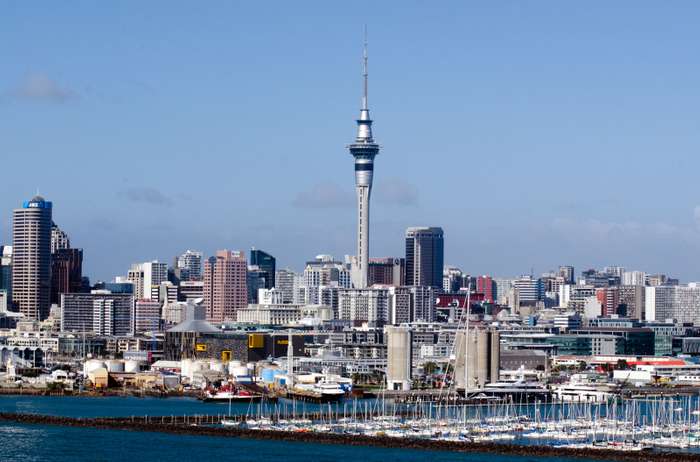New Zealand
WHY STUDY IN NEW ZEALAND?
New Zealand is one of the most significant English-speaking study-abroad destinations for Indian students. The country extends access to stimulated research expertise through globally acclaimed professionals, labs, and technology, with an investment of NZ$877 million each year. New Zealand nourishes a safe environment and a future-focused teaching. Moreover, the country facilitates international students to seek a global career on completion of their studies, through an open three-year post-study work visa making Study in New Zealand one of the best decisions of their lives.
There exist eight state-funded universities and 600 private universities to Study in New Zealand. People attending civic Universities can undertake PhD programs, postgraduate and undergraduate programs. There are 23 universities of technology and polytechnics (ITPS) where Indian students can pursue postgraduate and undergraduate vocational courses. There are also Wananga institutions where you may discover about the Maori people. The education system in New Zealand is vibrant and offers useful courses for its attendees.
ADVANTAGES OF STUDYING IN NEW ZEALAND
- Employers worldwide consider a New Zealand institution with admiration. They may not be as popular as Ivy League colleges in the USA, or the upper-class universities in the United Kingdom, but they still have a promising stature.
- Unlike studying in the UK, the USA or Europe, your wealth goes far further when you Study in New Zealand. Meals with fresh ingredients in cafes will amount to less than USD $15. It is merely in big cities where things start getting disproportionately expensive.
- If you are just as enthusiastic in practical work as written work, then that too is a satisfactory reason to Study in New Zealand since chief curriculum promote both in comparable measure. Teaching standards are also very decent, with a sharp focus on smaller class sizes and individual attention. There are moreover, plenty of learning and training courses to select from.
- New Zealand is furthermore, a youthful and autonomous country, which means there is less snobbery, for urge of a better word. If you are looking to Study in New Zealand, to get into the best universities, you simply need to be the promising and best student. It doesn’t matter about your background, who your parents are, or how much your family contributes to the university every year.
TOP UNIVERSITIES IN NEW ZEALAND

New Zealand has numerous categories of higher education institutions: universities, colleges, private institutions, and polytechnics. Although there are merely eight universities to Study in New Zealand, four feature in the world’s top 350 (according to Times Higher Education). If you suppose about it, that’s a pretty remarkable proportion.
All the below mentioned eight universities are rated within the QS World University Ranking top 500. The highest-ranked is the University of Auckland, which is in 82nd place, followed by the University of Otago in 151st place.
● University of Auckland
● University of Otago
● University of Canterbury
● Victoria University of Wellington
● University of Waikato
● Massey University
● Lincoln University
● Auckland University of Technology
All of New Zealand’s universities are publicly-funded organizations, extending a broad range of Masters degrees. They are split approximately evenly between the two main islands that make up New Zealand: AUT University, University of Auckland, Massey University, Victoria University of Wellington and Waikato University are found on the North Island (Te Ika-a-Maui). The University of Canterbury, University of Otago and Lincoln University are found on the South Island (Te Waipounamu).
Several Other Institutes:
Study in New Zealand furthermore offers 18 Institutes of Technology and Polytechnics (ITPs). They furnish professional and vocational education and training varying from introductory studies to full degree programs. Several ITPs also give English language training and postgraduate study choices, including up to Doctoral (PhD) degree. Courses are more vocationally acquainted, underlining practical experience and application to work situations. A degree from one of these institutions has proportional status with a university degree.
Tuition Fee in New Zealand
Approximate Tuition Fees at Universities:
Undergraduate courses: NZD $18000 – $25000 (INR 8 Lacs – 11 Lacs) per annum.
Post Graduate courses: NZD $25,000 – $40000 (INR 11 Lacs – 18 Lacs) per annum.
Arts and Humanities courses are at the lower end of this scale, while Science and Engineering courses are near the top.
Living Expenses in New Zealand
Approximate Cost of Living: NZD $ 12,000 – NZD $ 15,000 per year, where 1 NZD = INR 44 (approx.)
SCHOLARSHIPS IN NEW ZEALAND
It is quite difficult to get a scholarship for an international student, particularly when you consider that you are contending with a whole world full of students. However, here are a limited you can apply for, if you are looking forward to Study in New Zealand.
Top Government Scholarships for Indian Students
● New Zealand Development Scholarships
● New Zealand Commonwealth Scholarships
● New Zealand Excellence Awards
● New Zealand ASEAN Scholar Awards
● New Zealand International Undergraduate Fees Scholarship
● New Zealand International Doctoral Research Scholarships (NZIDRS)
● R.H.T. Bates Postgraduate Scholarship
Top University Scholarships for Indian Students
● University of Otago International Research Postgraduate (Masters) Scholarships
● University of Otago Doctoral Scholarship
● UC international First-Year Scholarships
● University of Waikato International Scholarships
● A. C. Rayner Memorial Scholarship
● The Eamon Molloy Memorial Scholarship
● University of Waikato Excellence Scholarship for Asia
● Wellington Doctoral Submission Scholarship
● AUT Marsden PhD Scholarship in Statistics
● University Of Waikato Taught Postgraduate Scholarships
Part time work for International Students
If you are on a study visa, you are eligible to work 20 hours per week. During university vacation time, you are able to work full-time on a study visa. Just be sure that you know the laws because you do have to pay tariff; the rules are different for doctoral learners. Most significantly, you cannot be self-employed when you Study in New Zealand.
APPLICATION DEADLINES
Application deadlines for degree programs in New Zealand differ according to the semester in which a course commences:
● For a Masters commencing in semester one (February-June), you should generally apply by the 31st of October in the preceding year.
● For a Masters commencing in semester two (July-November), you should generally apply by the 30th of April in the year your course starts.
ELIGIBILITY
The provisions vary between study programs and levels. For each and every course, Indian students will need to fulfill a minimum English language requirement (IELTS / TOEFL / PTE) to Study in New Zealand.
● For Bachelors, at least 6.0 in IELTS, 79 in TOEFL and 50 in PTE.
● For Postgraduate, minimum 6.5 in IELTS, 88 in TOEFL and 58 in PTE
● For Bachelor programs, students require a least academic record of 65 – 80% and over in Class XII.
● For postgraduate programs, students require a minimum of 55 – 70% in Bachelors.
● 2 – 3 years of work knowledge is expected for MBA programs.
Also, GRE / GMAT is not mandatory to Study in New Zealand.
APPLICATION PROCESS

There are several means to apply for a Bachelor or Masters if an international student wants to Study in New Zealand. While you can also apply directly to the universities, maximum of which will deliver application guidelines online but it is always recommended to consult and take guidance from a Counselor at Eduglobe Consultants. Our counselors are vastly experienced and offer free consultancy since we have tie-ups with all the Universities.
APPLICATION REQUIREMENTS
To Study in New Zealand, the most crucial portion of your application will usually be evidence of your existing qualifications or experience (as appropriate).
In extension to these, you may be required to submit:
● Academic transcripts: Universities in New Zealand will desire to see a certified transcript, documenting the modules you’ve studied and the grades you earned for them. Your recent or previous university should be able to formulate this for you upon request.
● References (LOR): Not all programs will expect references. If you are inquired to furnish some, you should possibly incorporate statements from tutors, employers or other people with experience of you in an academic or professional context.
● Personal statement (SOP): You’re most likely to be inquired for a personal declaration (SOP) as part of your application to an undergraduate program, a professional development program or a Masters by Research (where it may be correlated with your project proposal).
● Satisfactory IELTS / TOEFL /PTE Scorecard
Interviews
Interviews aren’t probable to be expected for international Masters students in New Zealand. It is also not required for a Bachelor’s degree either when you Study in New Zealand.
Regardless, if the institution does want to converse with you during your application, they might organize a less formal meeting over Skype or telephone.
TOP COURSES TO STUDY IN NEW ZEALAND

Study in New Zealand
● Animation
● Engineering (Chemical, Geotechnical, Mechanical, Electrical-Electronics, Civil)
● Medicine
● Environmental Science & Forestry
● Hospitality and Tourism
● IT and Computer Science
● Agriculture
● Food Science & Technology
● Art and design
● Nursing
● Health care
● Business studies & management
● Finance
● Logistics
● Sports management
Numerous universities have a campus where you may keep up for your first year. The notion of only being able to stay on-site for a year may seem concerning but think of it as providing you a full year to discover a place to stay. Usually, the area you find will be student accommodation, and you will possibly end up living with the friends you have made. Almost every New Zealand University has an assistance that assists you discover accommodation in your first or successive years.
While you Study in New Zealand, do not bother too much about long-term residence because you have to recall that hundreds of students go looking for accommodation every year, and hundreds of students discover it. There are even universities that give longer living arrangements, like Massey University where apartments are offered to students.
In the short term, you can locate student housing before you reach, which may be helpful if you are already going over to Study in New Zealand with a ton of your Indian friends. Alternatively, you can spend for a room on campus, where you might have your own compartment or share with another person confiding on how much you wish to spend for lodging.
Do not be too fast to hop at having your own place. For instance, a studio flat at Lucas Creek Village in the Albany Campus will amount to you over US$300 per week with a 38-week contract.

